cortisol detox diet plan pdf
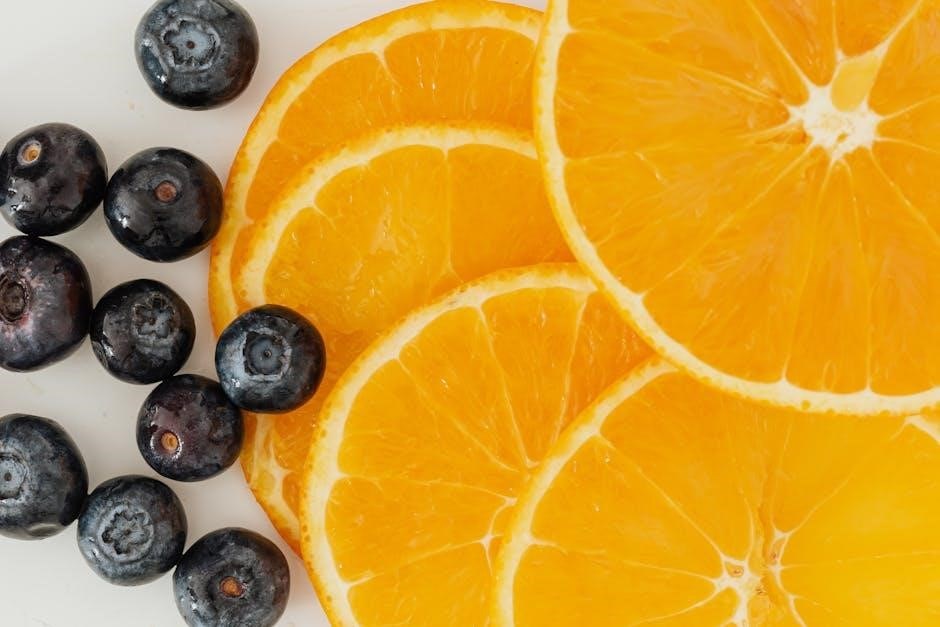
The Cortisol Detox Diet Plan is a nutritional approach focusing on whole foods to lower cortisol, enhance energy, and reduce stress. It offers a structured, easy-to-follow guide to balance hormones and promote overall well-being, tailored to support adrenal health and stress management.
What is Cortisol and Its Impact on the Body?
Cortisol, a hormone produced by the adrenal glands, plays a crucial role in stress response, metabolism, and immune function. Chronically elevated cortisol levels can lead to weight gain, insomnia, and a weakened immune system. Managing cortisol through diet is essential for balancing hormones and improving overall well-being, making it a key focus of the detox plan.
Why a Cortisol Detox Diet is Necessary
A cortisol detox diet is essential for addressing chronic stress and hormonal imbalances. By focusing on nutrient-rich foods, it helps lower cortisol levels, reduce belly fat, and improve energy. This dietary approach supports adrenal function, enhances mental clarity, and promotes better sleep, making it a vital tool for long-term health and well-being in a stress-driven world.
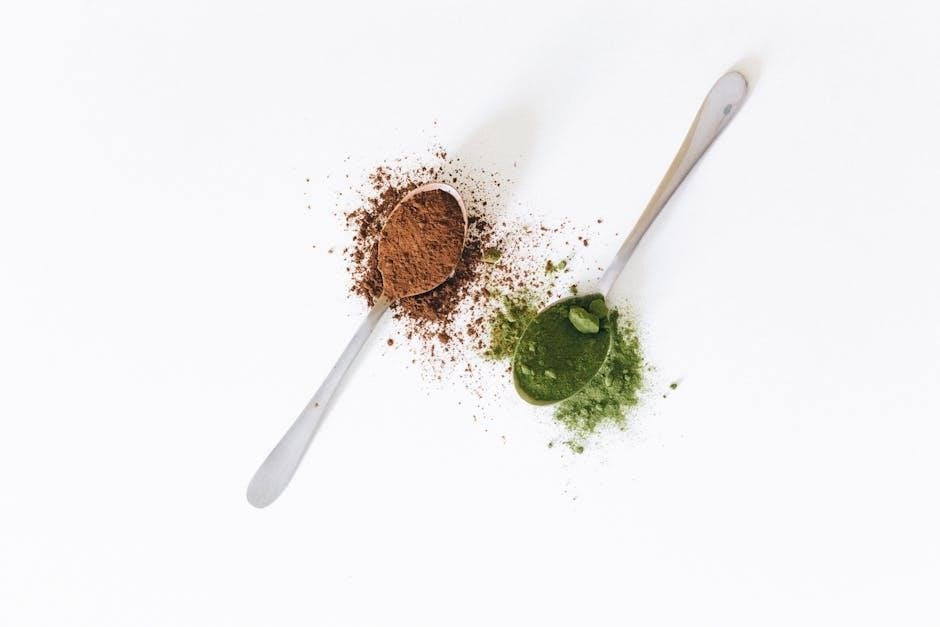
Understanding Cortisol and Its Role in the Body
Cortisol, a hormone produced by the adrenal glands, plays a crucial role in stress response, metabolism, immune function, and energy production. Maintaining balanced levels is vital for overall well-being.
The Science Behind Cortisol Production
Cortisol is produced by the adrenal glands, triggered by the hypothalamus and pituitary gland. Its release follows a circadian rhythm, peaking in the morning and declining at night. Chronic stress disrupts this balance, leading to elevated levels. Understanding this process is key to managing cortisol through dietary and lifestyle changes, as outlined in the Cortisol Detox Diet Plan.
How Elevated Cortisol Levels Affect Overall Health
Elevated cortisol levels can lead to weight gain, disrupted sleep patterns, and a weakened immune system. Chronically high cortisol may also contribute to blood sugar imbalances, increased blood pressure, and mood disturbances like anxiety or irritability. Over time, it can impair cognitive function and exacerbate conditions such as diabetes or cardiovascular disease, highlighting the importance of managing cortisol levels.
Key Foods to Include in a Cortisol Detox Diet
Focus on nutrient-dense foods like leafy greens, omega-3 rich fish, and healthy fats to nourish the body and promote hormonal balance, reducing cortisol naturally.
Omega-3 Rich Foods: Salmon, Walnuts, and Flaxseeds
Omega-3 rich foods like wild-caught salmon, walnuts, and flaxseeds are essential for reducing inflammation and cortisol levels. These foods promote brain health, support adrenal function, and aid in stress reduction, making them a cornerstone of a cortisol detox diet plan. Incorporating them regularly helps maintain hormonal balance and overall well-being. They are packed with antioxidants and healthy fats, ensuring optimal nutrition.
Leafy Greens and Cruciferous Vegetables
Leafy greens like spinach, kale, and arugula, along with cruciferous vegetables such as broccoli and Brussels sprouts, are rich in antioxidants and fiber. These foods help reduce inflammation, detoxify the body, and regulate stress hormones, making them ideal for a cortisol detox diet. They support adrenal function and promote overall health, aiding in natural cortisol balance and enhanced energy levels.
Healthy Fats: Avocados, Eggs, and Nuts
Healthy fats, including avocados, eggs, and nuts, are essential for balancing cortisol levels. Avocados provide sustained energy, while eggs offer choline for brain health. Nuts like almonds are rich in magnesium, which supports adrenal function. These fats promote hormone balance, reduce inflammation, and enhance nutrient absorption, making them a cornerstone of a cortisol detox diet.
Foods to Avoid During Cortisol Detox
Eliminate refined sugars, processed foods, and high-caffeine beverages, as they trigger cortisol spikes, disrupt energy balance, and promote inflammation, hindering detox efforts and hormone regulation.
Refined Sugars and Artificial Additives
Refined sugars and artificial additives are cortisol-raising culprits, causing energy crashes and inflammation. They disrupt adrenal function and stress hormones, making detox less effective. Avoid processed snacks, sugary beverages, and foods with artificial flavors or preservatives to maintain hormonal balance and support your detox goals.
Processed Foods and High-Caffeine Beverages
Processed foods are high in unhealthy fats, sodium, and sugars, which can spike cortisol levels and hinder detox efforts. High-caffeine beverages like coffee and energy drinks may provide short-term energy but can overstimulate the adrenal glands, increasing stress hormones. Limiting these helps maintain a balanced cortisol response and supports overall well-being during the detox process. Opt for natural, nutrient-rich alternatives instead.

Sample 7-Day Cortisol Detox Meal Plan
Start with green smoothies, avocado toast, and overnight oats for breakfast. Include grilled salmon, quinoa bowls, and steamed vegetables for balanced lunches and dinners. Opt for nutrient-rich snacks like nuts and berries to maintain energy levels throughout the day. This plan focuses on whole, anti-inflammatory foods to support cortisol balance and overall health.
Breakfast Ideas: Green Smoothies, Avocado Toast, and Overnight Oats
Begin your day with nutrient-dense breakfasts. Green smoothies blend spinach, banana, almond milk, and chia seeds for a refreshing start. Avocado toast on whole-grain bread offers healthy fats and fiber. Overnight oats with berries and nuts provide sustained energy and antioxidants. These options are rich in omega-3s and fiber, helping to stabilize cortisol levels and kickstart metabolism naturally.
Lunch and Dinner Options: Grilled Salmon, Quinoa Bowls, and Steamed Vegetables
Grilled salmon is a rich source of omega-3 fatty acids, which help reduce inflammation and balance cortisol. Quinoa bowls packed with leafy greens, nuts, and seeds offer a complete protein and fiber-rich meal. Steamed vegetables like broccoli and asparagus provide essential vitamins and antioxidants. These options support adrenal health and promote a balanced cortisol response, making them ideal for lunch and dinner.
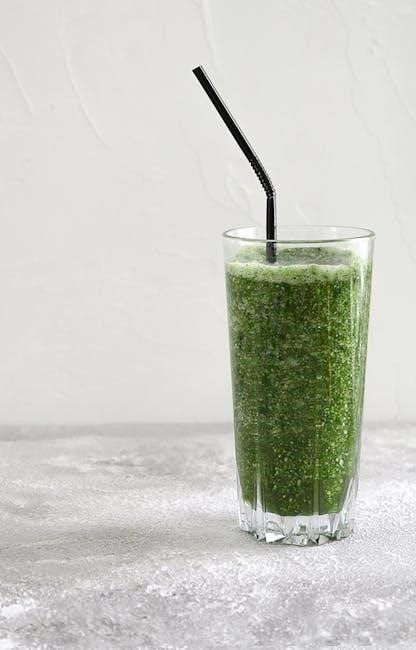
Lifestyle Changes to Support Cortisol Detox
Regular exercise, adequate sleep, and stress management are crucial. These practices help regulate cortisol, improve energy, and enhance overall well-being, supporting the detox process effectively.
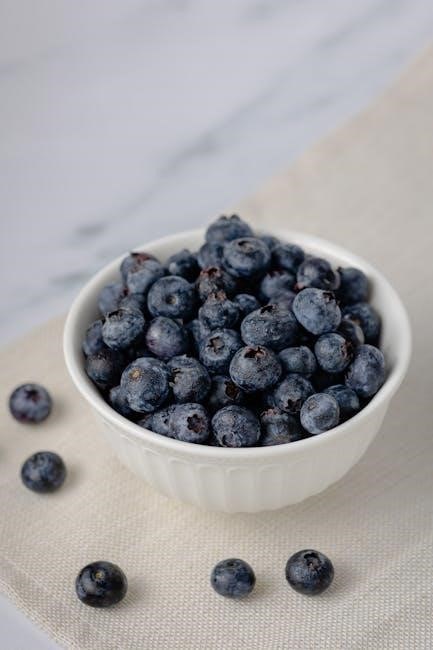
The Importance of Regular Exercise and Adequate Sleep
Regular exercise and adequate sleep are vital for cortisol balance. Exercise reduces stress and enhances mood, while quality sleep helps regulate cortisol levels. Aim for 7-9 hours of sleep and incorporate moderate exercise, such as yoga or walking, to support your detox journey and overall hormonal health.
Stress Management Techniques: Meditation and Yoga
Meditation and yoga are powerful tools for lowering cortisol and managing stress. These practices promote relaxation, reduce anxiety, and improve emotional resilience. Incorporating daily sessions can help balance hormones, enhance mental clarity, and support overall well-being, making them essential components of a successful cortisol detox plan.
Supplements and Nutrients for Cortisol Balance
Essential supplements like magnesium, vitamin C, and B complex, along with herbal options such as ashwagandha and rhodiola, support adrenal function and naturally lower cortisol levels, reducing stress and promoting balance.
Vitamins and Minerals: Magnesium, Vitamin C, and B Complex
Magnesium supports adrenal function and relieves stress, while vitamin C aids in cortisol regulation. B complex vitamins, particularly B5, B6, and B12, are crucial for energy production and hormonal balance. Incorporating these nutrients into your diet or through supplements can help stabilize cortisol levels and enhance overall well-being during the detox process.
Herbal Supplements: Ashwagandha and Rhodiola
Ashwagandha is an adaptogen that reduces cortisol levels and enhances stress resilience. Rhodiola improves mental clarity and combats fatigue. Both herbs are scientifically backed to support adrenal health and balance stress hormones, making them excellent additions to a cortisol detox diet plan for natural and sustainable results;
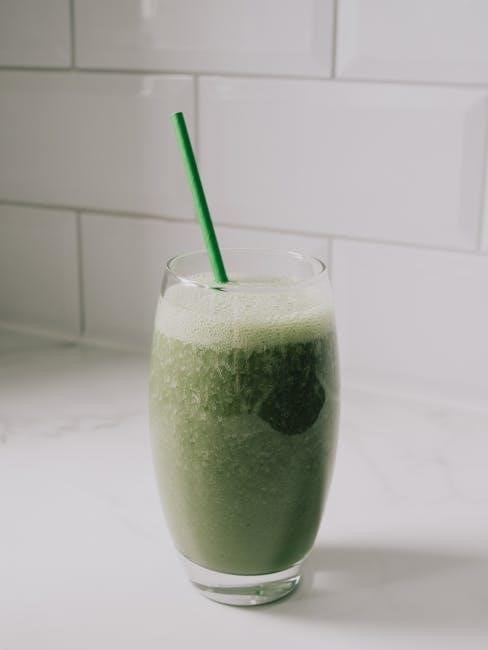
Potential Benefits of a Cortisol Detox Diet
A cortisol detox diet helps reduce stress, improve energy, and support weight management. It enhances mental clarity, promotes better sleep, and fosters overall hormonal balance and well-being naturally.
Weight Management and Improved Energy Levels
A cortisol detox diet helps stabilize cortisol levels, reducing belly fat and boosting metabolism. By focusing on nutrient-rich foods, it enhances energy production and supports sustainable weight loss. Elevated cortisol often leads to fatigue and weight gain, but a balanced diet can reverse these effects, promoting a leaner, more energetic you.
Incorporating omega-3s, leafy greens, and healthy fats helps lower cortisol, reducing stubborn fat and increasing vitality. Avoiding refined sugars and processed foods further aids in weight management and energy stabilization, creating a healthier, more balanced body composition over time.
Enhanced Mental Clarity and Reduced Stress
A cortisol detox diet supports brain health by reducing inflammation and oxidative stress. Foods rich in antioxidants and omega-3 fatty acids, such as walnuts and salmon, improve cognitive function and mental clarity. Lowering cortisol levels also diminishes stress-related brain fog, enabling sharper focus and a calmer mind, which are essential for overall mental well-being.
By incorporating stress-lowering nutrients like magnesium and B vitamins, this diet helps regulate cortisol, promoting relaxation and reducing anxiety. The result is improved mental clarity, better mood regulation, and enhanced ability to handle daily stressors effectively.
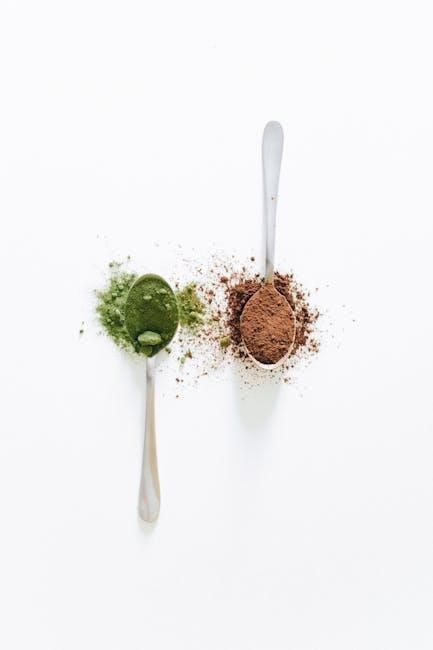
Avoiding Fad Diets and Maintaining a Balanced Approach
Avoid liquid-based and low-calorie diets, as they can increase stress and raise cortisol levels. Focus on sustainable eating habits with nutrient-rich foods for long-term benefits.
The Risks of Liquid-Based and Low-Calorie Detox Diets
Liquid-based and low-calorie detox diets can increase stress, raise cortisol levels, and boost appetite. They often lack essential nutrients, leading to fatigue and nutrient deficiencies. These diets are unsustainable and may hinder long-term health goals, making balanced eating habits a better choice for managing cortisol and promoting overall well-being.
Importance of Sustainable Eating Habits
Adopting sustainable eating habits is crucial for long-term cortisol balance. Focus on nutrient-dense meals with whole foods, healthy fats, and lean proteins. Avoid restrictive diets and instead foster a balanced lifestyle, ensuring consistent energy and hormonal stability. This approach supports adrenal health and overall wellness without the risks associated with extreme or fad diets.
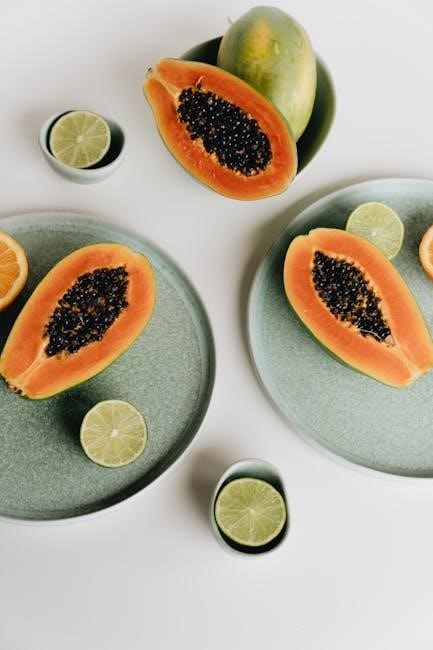
Personalizing Your Cortisol Detox Diet Plan
Tailor your Cortisol Detox Diet Plan to individual needs, lifestyle, and preferences. Customize meals for different phases to ensure a personalized approach to cortisol balance.
Considering Individual Nutritional Needs and Lifestyle
Personalize your Cortisol Detox Diet Plan by considering dietary preferences, health conditions, and lifestyle. Incorporate leafy greens, salmon, and healthy fats while adapting portion sizes and meal frequencies. This tailored approach ensures sustainability and effectiveness, addressing unique nutritional needs for optimal cortisol balance and overall well-being.
Customizing Meal Plans for Different Phases
The Cortisol Detox Diet Plan is structured in phases, allowing you to adapt meals based on progress and goals. Early phases focus on resetting hormones with nutrient-dense foods, while later stages emphasize maintenance. Incorporate key foods like salmon and leafy greens, avoid refined sugars, and adjust portions to suit your lifestyle, ensuring a tailored approach for sustainable cortisol balance and overall well-being.
Grocery List for Cortisol Detox Diet
Stock up on leafy greens, salmon, avocados, nuts, and whole grains. Include chia seeds, quinoa, and berries for a balanced cortisol-friendly pantry, ensuring sustained energy and hormone balance.
Essential Items: Leafy Greens, Salmon Fillets, and Healthy Fats
Leafy greens like spinach and kale are rich in magnesium, which helps lower cortisol. Salmon fillets provide omega-3s to reduce inflammation. Healthy fats, such as avocados and nuts, support hormone balance and provide sustained energy, making them crucial additions to your detox diet for optimal adrenal function and stress reduction.
Pantry Staples: Whole Grains, Nuts, and Seeds
Whole grains like quinoa and brown rice offer sustained energy and fiber. Nuts and seeds, such as almonds and chia seeds, are rich in healthy fats and antioxidants. These staples support adrenal health and provide essential nutrients, helping to regulate cortisol levels and maintain a balanced diet throughout your detox plan.
Adopting a cortisol detox diet supports long-term hormone balance and overall well-being. Continue monitoring progress, adjusting the plan as needed, and prioritize sustainable lifestyle changes for lasting health benefits.
Long-Term Strategies for Maintaining Healthy Cortisol Levels
Adopting a balanced diet rich in anti-inflammatory foods, staying hydrated, and maintaining regular meal times supports cortisol balance. Prioritize quality sleep, moderate exercise, and mindful stress management. Regularly monitor cortisol levels and adjust your plan as needed. Incorporate periodic detox phases and seek professional guidance to ensure a sustainable, long-term approach to hormone health and overall wellness.
Monitoring Progress and Adjusting the Diet Plan
Regularly track weight, energy levels, and sleep quality to assess progress. Adjust portion sizes or food choices based on how your body responds. Incorporate new recipes and rotate ingredients to maintain variety. Stay consistent with the plan, and consider periodic re-assessments with a healthcare provider to refine your approach for optimal cortisol balance and overall health benefits.





